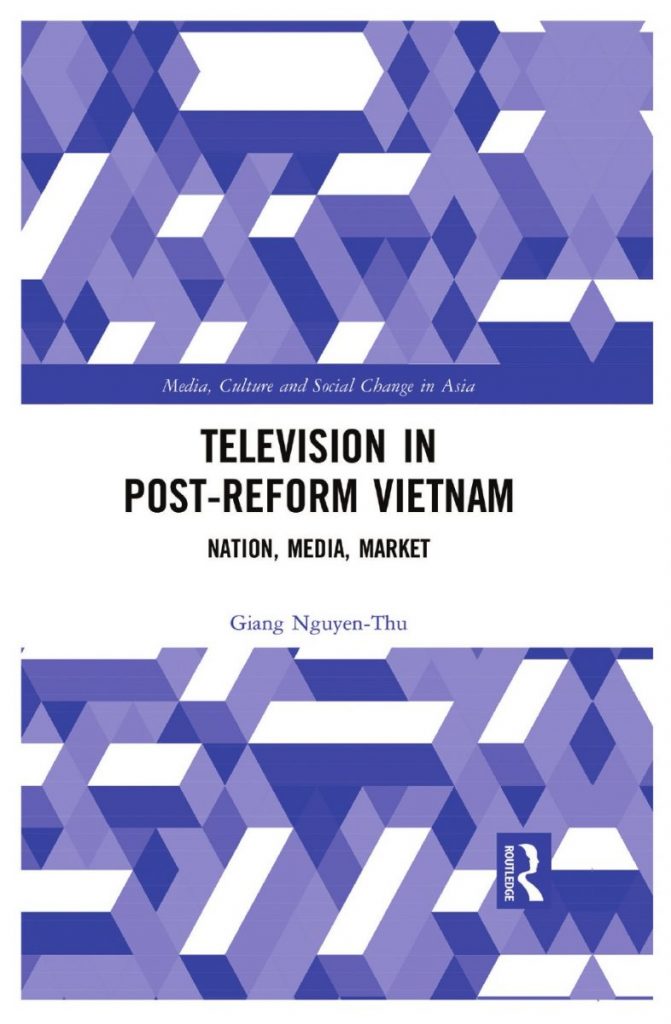Giang Nguyen-Thu, chercheuse au Center for Advanced Research in Global Communication, a publié cet automne chez Routledge un ouvrage intitulé « Television in Post-Reform Vietnam: Nation, Media, Market ». Ce texte propose une histoire de la télévision vietnamienne à partir de 1986 et montre comment celle-ci affecte la vie quotidienne des Vietnamiens et la manière dont ils lui donnent sens.
Giang Nguyen-Thu s’intéresse actuellement aux médias sociaux au Vietnam, et particulièrement à l’utilisation de Facebook par les mères, pour révéler la nature genrée de la précarité et la complexité géopolitique du Vietnam contemporain.
Présentation de l’ouvrage:
 « This book explores Vietnamese popular television in the post-Reform era, that is, from 1986, focussing on the relationship between television and national imagination. It locates Vietnamese television in the experiences of everyday life and the prevailing network of power relations resulting from marketization and globalization, and, as such, moves beyond the clichéd assumption of Vietnamese media as a mere propagandist instrument of the party state. With examples from a wide range of television genres, the book demonstrates how Vietnamese television enables novel conditions of cultural oppression as well as political engagement in the name of the nation. In sharp contrast to the previous image of Vietnam as a war-torn land, post-Reform television conjures into being a new sense of national belonging based on an implicit rejection of the socialist past, hopes for peace and prosperity, and anxieties about a globalized future. This book highlights the richness of Vietnam’s current culture and identity, characterized, the book argues, by ‘fraternity without uniformity’. »
« This book explores Vietnamese popular television in the post-Reform era, that is, from 1986, focussing on the relationship between television and national imagination. It locates Vietnamese television in the experiences of everyday life and the prevailing network of power relations resulting from marketization and globalization, and, as such, moves beyond the clichéd assumption of Vietnamese media as a mere propagandist instrument of the party state. With examples from a wide range of television genres, the book demonstrates how Vietnamese television enables novel conditions of cultural oppression as well as political engagement in the name of the nation. In sharp contrast to the previous image of Vietnam as a war-torn land, post-Reform television conjures into being a new sense of national belonging based on an implicit rejection of the socialist past, hopes for peace and prosperity, and anxieties about a globalized future. This book highlights the richness of Vietnam’s current culture and identity, characterized, the book argues, by ‘fraternity without uniformity’. »